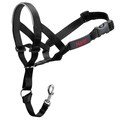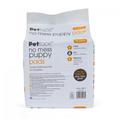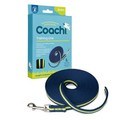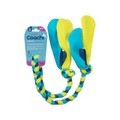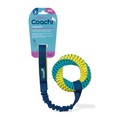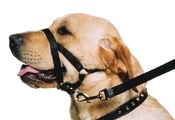Although introducing a bouncing puppy into your home is an exciting time for all the family, you'll soon learn that these adorable balls of fluff can be a real handful.
In the early days of your pup's life you'll no doubt be treated to plenty of games of ball in the garden and endless cuddles, but there'll also be countless little puddles, muddy furniture and the odd chewed shoe thrown in with the deal.
Therefore, whether you have a purebred pedigree poodle or a hairy mongrel mutt on your hands, it's a good idea to start puppy training as soon as possible
House rules
First things first when it comes to puppy training - before you can even think about teaching fancy tricks and obedience training, your little one will need to learn how to adapt to living in your home environment, which means laying down some ground rules and sticking to them from day one.
A young dog is often easier to train than an older mutt, so take advantage of this time to instil some good behaviour such as not jumping up, climbing on the furniture or nipping you playfully.
Think carefully about this as once your dog gets into habits they can be hard to break and dogs tend to respond to consistency. For example, it may be cute to have a fluffy puppy curled up next to you on the sofa but this might not be so appealing when they're a fully grown canine trampling muddy paws across your cushions.
Although, it can be tempting to punish a naughty puppy, this often isn't the most effective training method. Young dogs crave attention so a good rule of thumb is to ignore any bad behaviour such as barking, nipping or jumping up, but reward calm, good behaviour with plenty of fuss, praise and healthy dry dog food treats.
Toilet training
While the occasional little 'accidents' are an inevitable part of raising a puppy, all owners will want to eliminate puddles and messes as soon as possible, which means toilet training will be a priority.
The best way to go about this is to ensure that you let your dog out the house and into the garden or outside area as much as possible, especially after they've been fed on their premium dog food, first thing in the morning and last thing at night.
"Puppies cannot physically hold their bowel and bladder functions nearly as long as an adult, because the actual muscles involved are not yet strong enough," advises Tamara Dormer, a dog trainer at Best Friends Animal Society.
"So while an adult dog may be able to hold it for eight to 12 hours, depending on the dog, a puppy should be offered to relieve themselves after each meal, each drink of water, play times, waking up from sleeping and every two hours otherwise."
Basic commands
Once your puppy is settled you can then start to introduce basic obedience training. No one's expecting your dog to master Crufts-level obedience, but simple training is a great way to bond with your pup and basic commands such as 'sit' and 'down', as well as learning to walk to heel, can come in useful when forming a happy partnership.
Puppy classes are often a good way to introduce obedience training and are excellent for socialising a young pooch, but you can also teach basic commands at home using plenty of praise and reward, and making the experience a fun one for both dog and owner.
Puppies respond well to encouragement, but can also be a bit mischievous and push their boundaries so be firm, fair and consistent so as not to confuse your pooch, and before long you'll soon have a happy, trained canine companion.
Puppy training aids, puppy walking, puppy toys.
Written by: Visitor





